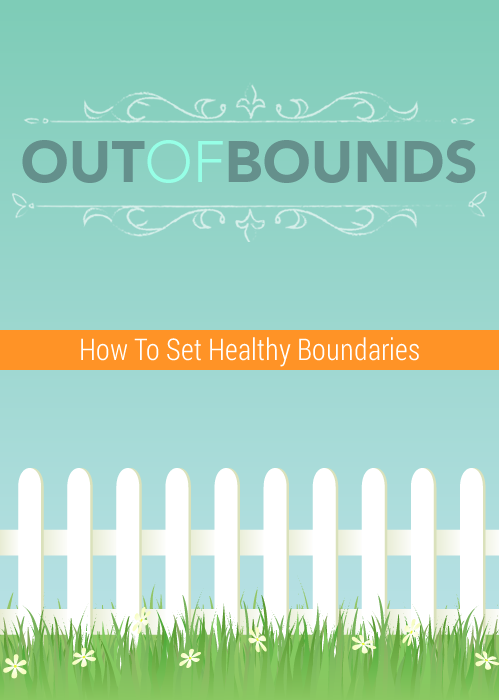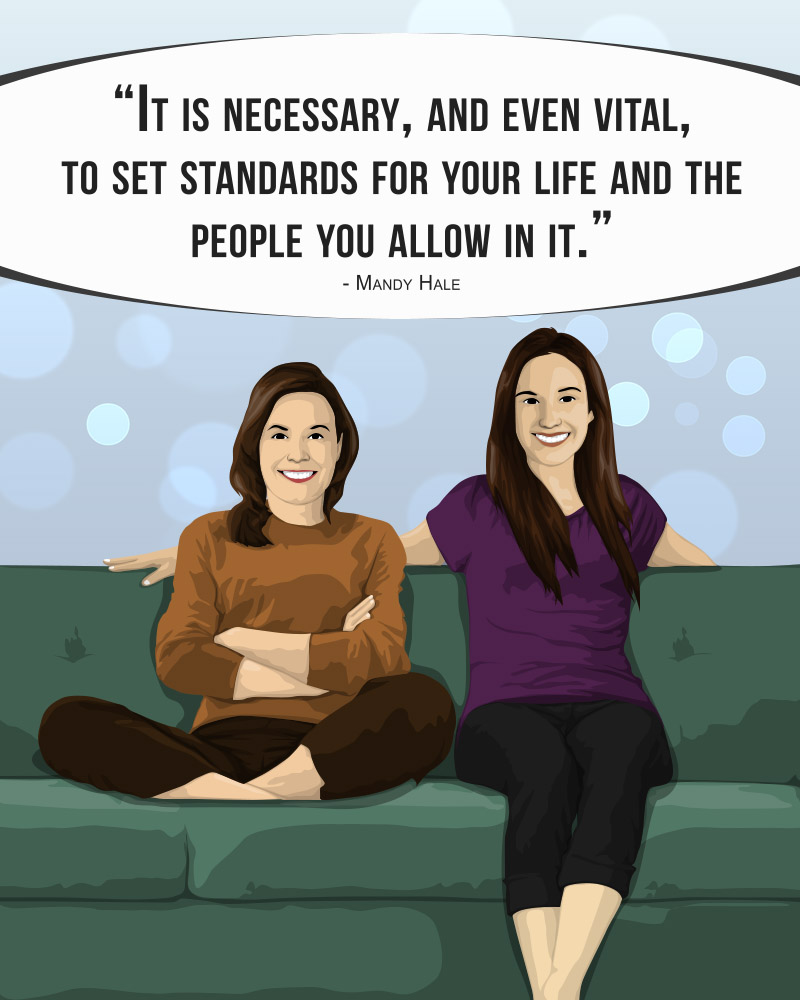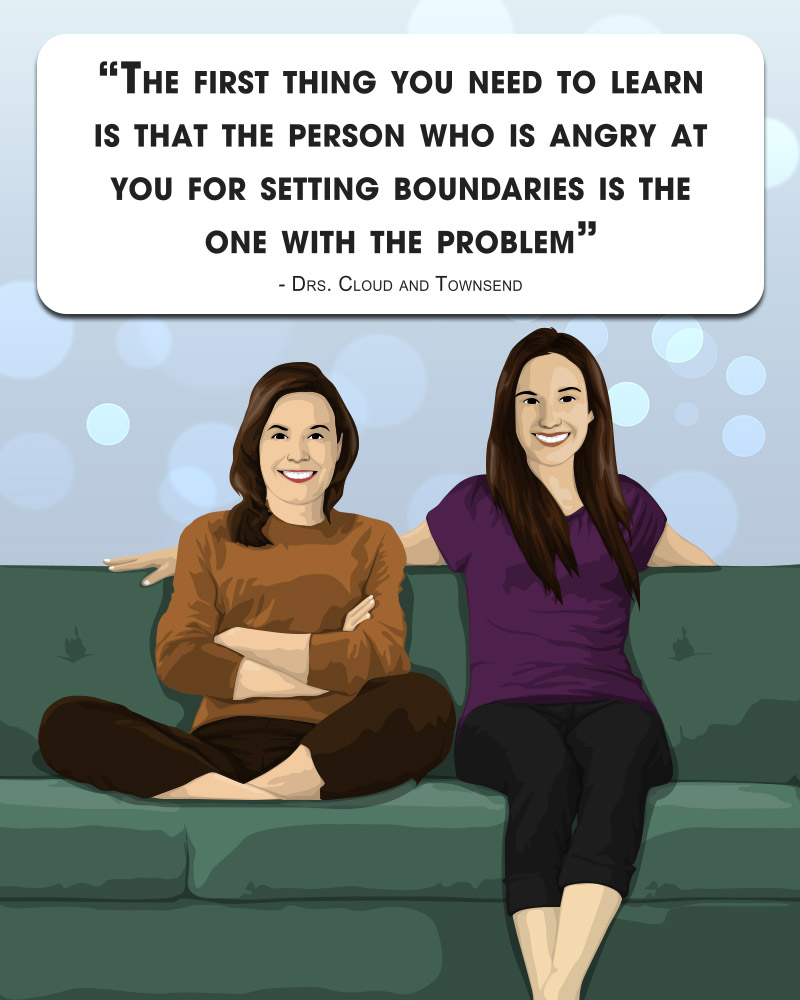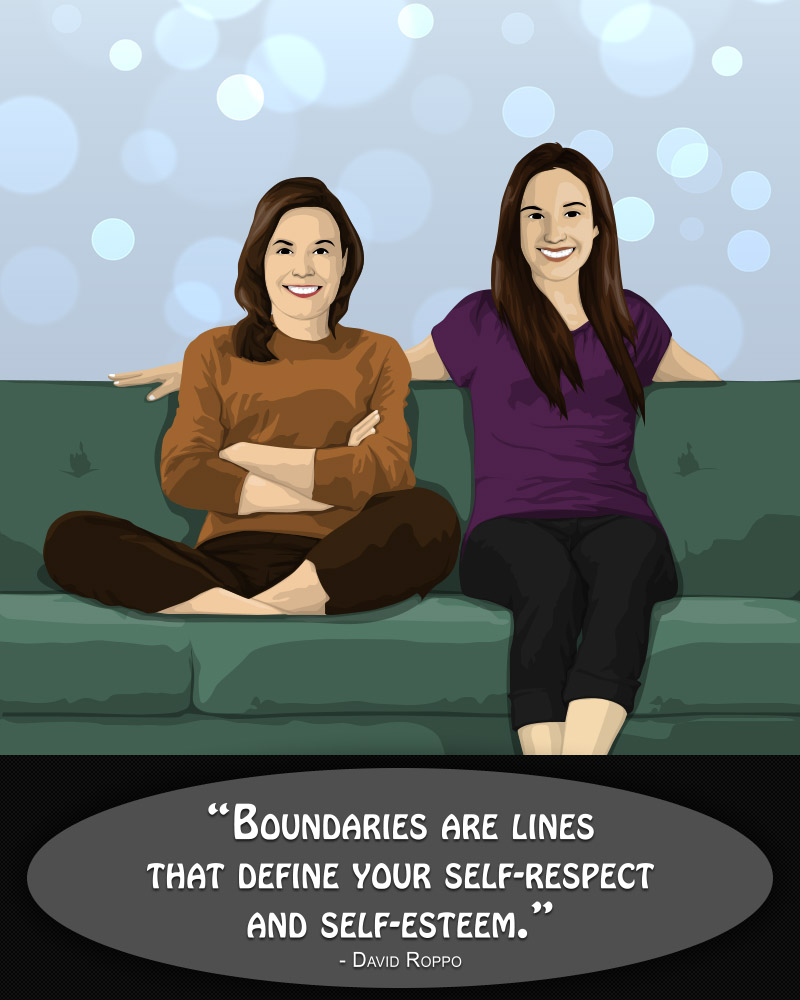Monthly Featured Article (June 2018)
Chapter 2: Boundary Conflicts >
Chapter 3: Developing Healthy Boundaries >
Out of Bounds: How to Set Healthy Boundaries
Introduction and Chapter 1: What Are Boundaries?
by Susie J. Briscoe
Introduction

Are you often exhausted at the end of a day and can’t figure out what happened to all the energy you started with at the beginning of the day? Perhaps you can’t think of one thing you’ve accomplished for yourself.
You may feel that you’re inside a prison which you’ve created for yourself because you let people disrespect you by sucking up your time and efforts without you having any say whatsoever.
Being unable to set effective personal boundaries can leave you overwhelmed and exhausted – both professionally and personally. Your life may need revamping to include boundaries which you: a) set for yourself and b) are confident that you have the courage to carry out.
This guide, Out of Bounds: How to Set Healthy Boundaries is designed to help you over the hurdles of setting healthy boundaries for your life and providing tips to handle situations involving work, family, spouse and friends.
You’ll learn what personal boundaries are and why they’re so important to your future health and well-being. You’ll also learn various situations in each category that commonly occur in relationships – and how to handle them with diplomacy rather than anger.
Knowing how to develop and set boundaries for yourself is often the most difficult part of establishing them. You may fear hurting someone’s feelings or even ending the relationship.
While this is a possibility, it’s unlikely if you do it properly. Anticipating the reaction(s) and planning how you’ll react is one way to handle a delicate situation of boundary setting.
It’s time to rethink and set some boundaries if you’re feeling powerless and your self-confidence is dwindling because you’re not standing up for yourself. Out of Bounds: How to Set Healthy Boundaries will guide you through the life-changing process of setting boundaries – and getting your life back.
Chapter 1: What Are Boundaries?
Most people think of boundaries in geographical terms -- those imaginary lines (or drawn lines on a map) which separate one country, state or region from another. Many times you need a passport or visa to enter another area because the country or region has a government which sets rules and guidelines for entering the space.
 Personal boundaries are guidelines or a set of rules and limits that you set for yourself about how others behave around you. Your personal guide is developed by many factors in your life, including past experiences, personal beliefs, attitudes, and lessons you’ve learned from social interaction.
Personal boundaries are guidelines or a set of rules and limits that you set for yourself about how others behave around you. Your personal guide is developed by many factors in your life, including past experiences, personal beliefs, attitudes, and lessons you’ve learned from social interaction.
When a person in your life steps over those boundaries, you respond in a certain way. You may respond with anger or surprise and simply walk away. Or, you might ignore the overstep and stew over it at a later time – wishing you had handled it differently.
Personal boundaries may be based on physical, psychological, spiritual, emotional, intuitive, or those involving your own self-esteem. Your boundaries may involve protecting yourself from harm – either mental or physical – and are sometimes based on your social status or genetic makeup.
Many people have rigid boundaries which make them somewhat difficult to get to know while others have almost invisible boundaries which make them susceptible to abuse or manipulation.
You may have set personal boundaries in your working relationships, personal relationships, or in interactions with people you meet for the first time. If you’re a narcissist, you may recognize no boundaries in others and feel that people are simply extensions of your own personality – anything goes as long as you agree.
There are several types of personal boundaries which you might set for yourself. They include:
- Physical – These boundaries involve your personal space and dictate how you relate to people or things that come into that space. For example, are you more apt to hug or shake hands? How do you feel when a car blaring loud music pulls up beside yours at a traffic light? When someone or something invades your physical space, you react one way or another because of the boundaries you’ve set for yourself.
- Mental – Boundaries which apply to your opinions and values make up your mental boundaries. Standing up for what you believe in is part of the mental boundaries you set for yourself. Being open-minded rather than rigid and angry when listening to someone else’s opinion is a sign that you’ve set healthy mental boundaries for yourself. Those who follow others without thinking and are mentally suggestible tend to have weak mental and emotional boundaries and are often swept into things that are harmful.
- Material – How you feel about giving things away or lending your personal items to others make up the material boundaries you set for yourself. You may think nothing of lending a book to someone, but when it comes to your personal hairbrush – you may balk. Part of your material boundaries may be the expectations you have when you give or loan someone money or things.
- Spiritual – Your beliefs which are connected with a higher power make up your spiritual boundaries. Some people try to manipulate the spiritual beliefs of others with scare tactics or being judgmental and manipulative. If spiritual boundaries are important to you, you’ll stand up for your beliefs and decide how you react to others when they question or interact with you about your beliefs.
- Emotional – Healthy emotional boundaries involve you accepting responsibility for yourself and your actions. You are protected from feeling guilty about the responsibilities of others to act appropriately. When you set up healthy emotional boundaries, you’ve likely set internal boundaries which help you know your limitations in responsibility for others and yourself. Negative comments from others aren’t taken personally when you’ve set good emotional boundaries.
All of these boundaries represent the rules of life you live by and determine what you will allow from others. If these boundaries are being trespassed, it’s your responsibility to speak up for yourself.
Why set personal boundaries?
 Your comfort level and the way you respond to others are all part of the personal boundaries you’ve set for yourself. Without them, it’s difficult to function because you are too busy trying to please others who may try to control or abuse you.
Your comfort level and the way you respond to others are all part of the personal boundaries you’ve set for yourself. Without them, it’s difficult to function because you are too busy trying to please others who may try to control or abuse you.
When you decide to change your personal boundaries – making them stronger to your beliefs or your old boundaries just aren’t working any more – know that there may be outcries of confusion from others.
Here are some main reasons you may need to change or set personal boundaries:
- You have difficulty saying “No.” This boundary includes your personal time. You may have a need to please and therefore take on tasks which eventually seem to interfere with what you really want or need to do.
- Feeling powerless. Children, spouses, and co-workers may make you feel as if you have no power over your life because of the demands they make on your time. They may cross boundaries of respect and you may feel that you’ve lost control of your own wants and needs.
 Your boundaries may be too rigid. Perhaps you’ve set boundaries so strict for yourself that you’ve created a wall that no one can penetrate – either physically or emotionally. Rigid boundaries are good in some situations, but you may need to lower the wall for relationships to flourish.
Your boundaries may be too rigid. Perhaps you’ve set boundaries so strict for yourself that you’ve created a wall that no one can penetrate – either physically or emotionally. Rigid boundaries are good in some situations, but you may need to lower the wall for relationships to flourish.- You feel that no one respects you. If you feel that you’re getting no respect from anyone – including those close to you and those you meet on a one-time basis (such as store clerks or business dealings) – it’s time to set appropriate boundaries and demand respect.
- Feeling resentful or victimized. Continuing a relationship or situation where you feel resentful or victimized is bad for your health. You may need counseling to learn how to deal with setting boundaries which will teach others how to treat you.
- You feel unsure of how to define your boundaries. You may react one way with a certain situation and an entirely different way for another. If you’re waffling back and forth, you may have more difficulty in teaching others just what your limits are.
You’ve got to set some boundaries in your life that help you get along with others and so that others know your limits. Even though you love your children unconditionally, you must set boundaries with them too or else they’ll learn to take advantage of certain situations.
Main Points of Chapter 1: What Are Boundaries?
Setting personal boundaries helps you develop your own personality and sets up rules and principles that you live by with everyone who enters your life – from the customer service person on the other end of the phone line to your spouse and children. This chapter further defines personal boundaries and why you should set your own.
- Types of boundaries that you might set for yourself include physical, mental, spiritual, emotional, and material.
- Narcissists don’t consider other peoples’ boundaries at all.
- Healthy boundaries help you keep an open mind and respect others’ boundaries.
- Rethink your personal boundaries if you’re feeling angry or victimized.
- Even spouses and children need to know your boundaries and the consequences if they overstep them.
- Consider your comfort level when setting boundaries. If a situation doesn’t feel right to you, set a boundary that will help you feel comfortable.
- Respect from others is part of setting boundaries. If you don’t feel respected by others, your boundaries may need to be reset.
Boundaries are extremely personal and are formed by your environment as well as your spiritual, physical, and mental makeup. They may have been developed as a child but you may need to rethink them as an adult.
Don’t forget to share with me what you discovered during this month and let me know if I may share it within this newsletter next month.
